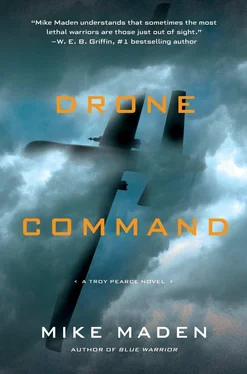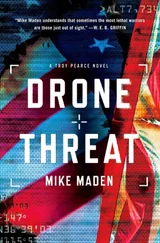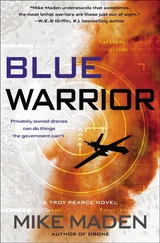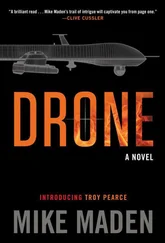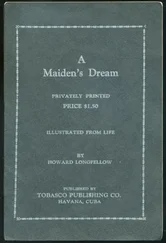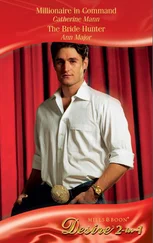“The president is the president of the whole country, not just a single city, as well as its commander in chief. As much as I would hate it, I would sacrifice one American city to save all the others in our alliance.”
Tanaka smiled thinly. “Yes, I’m sure you would. But would President Lane?”
“Without question. Why do you doubt his commitment?”
“I don’t. But you understand why other Japanese might not be as confident as I am?”
“We count on the wisdom and influence of men like you to help us guarantee the peace.”
“President Lane won his election with your help, did he not?”
“Not exactly. I was happy to advise him informally, suggest political allies from both parties he could trust. But he ran his own campaign.”
“He also ran on no new boots on the ground, didn’t he?”
Myers nodded. “Yes, but what that means is no new, unnecessary, undefinable, unwinnable wars. Our alliance with Japan doesn’t fall under that definition.”
“May I ask you a personal question?” Pearce said.
Tanaka nodded. “Of course.”
“I understand that you’re still in favor of nuclear energy, even after the Fukushima disaster.” Pearce glanced around the ground-zero monument. “Even after this. I would think Japan would be the most antinuclear country on the planet.”
Tanaka visibly tensed.
“Yes, I understand your confusion. But it’s quite simple, really. Unlike the U.S., Japan has few natural resources. We import all of our energy. Complete energy independence is an economic and strategic necessity if we wish to remain a sovereign, independent country. Only nuclear energy offers us that prospect.”
“But a catastrophic nuclear event could destroy your country,” Myers said.
“Admiral Hara intimated the North Koreans could strike the Fukushima complex with their new missile. That would be far more devastating than Hiroshima and Nagasaki combined,” Pearce said. “Fukushima might be your undoing.”
“Freedom isn’t free. Isn’t that what you Americans always say?”
“We say a lot of things,” Pearce said. “Especially things that can fit on a bumper sticker.”
“The bomb that was dropped here ended the war between us. Do you know what began it?” Tanaka asked.
“Pearl Harbor,” Myers said without hesitation.
“And what caused Pearl Harbor? An American oil embargo against Japan. So you see, Japanese energy independence is as vital to your national security as it is to ours.”
Tanaka glanced at the fading sky. “The storm is almost here. We should leave.”
Pearce checked the sky. Dark clouds boiled overhead. Tanaka was right. The storm would be breaking soon.
MAO ISLAND
APPROXIMATELY SIX MILES DUE WEST OF THE SENKAKU/DIAOYU ISLANDS
EAST CHINA SEA
6 MAY 2017
The forty-three-foot-long blue and white marine salvage boat bobbed heavily in the choppy waters. Rising Sun pennants flapped on wires that ran the length of the ship high into the rigging, and an enormous Rising Sun flag flew on top of the heavy winch on the fantail. They all flapped in the crisp breeze like a flock of red and white gulls hovering over the ship. Patriotic banners proclaimed SENKAKU ISLANDS BELONG TO JAPAN! in kanji ideographs and hiragana phonetic script and English.
A half-dozen crewmen were near the winch and dive gear, guiding a submerged diver to the exact location of the Chinese stele so they could haul it up. The men all wore Rising Sun headbands, mostly college students and activists from the mainland. Locals crewed the boat.
A small aluminum skiff with an outboard motor ran circles around the dive boat, also flying colors. The driver in the rear wore a Rising Sun headband as did his passenger, who stood uneasily toward the bow, shooting video. Patriotic music blared from a portable digital player at their feet.
A boat horn blasted in the distance. The men on the dive boat looked up. Someone shouted and pointed.
A red and white fishing trawler split the blue water against its high prow. Rusted and weather-beaten, the ancient sea hag had two dozen old car tires serving as fenders. Black smoke belched out of a short stack. Fishing trawlers were common out here. But this one was plowing straight at them.
One of the Japanese crew shouted and waved to the video boat to check it out. The driver gunned the big outboard motor and raced toward the approaching rust bucket. The little skiff bounced heavily in the waves, tossing the amateur cameraman to the deck. He righted himself on the bench and straddled it, clutching it tightly between his thighs for balance. He put his eye to the camera’s rubber cup to keep the trawler in sight. He hit the record button, then the zoom.
The camera swept over the trawler’s decks and rigging that were crowded with fishermen in slickers and coveralls. Each held some sort of crude weapon — aluminum bats, wooden clubs, hunks of lumber. The cameraman caught the faded white letters on the bow. A Chinese boat for sure.
The cameraman shouted to the driver to get back to the dive boat. The little aluminum skiff spun on a dime. The driver banked a steep turn in the water, nearly spilling both of them out in his panic. They got within shouting distance of the salvage boat, yelling out dire warnings.
The Japanese crew erupted in their own panicked shouts as they scrambled over the decks, looking for weapons or shelter. A lookout called out the quickening distance as the rusted Chinese trawler barreled closer. The men on the winch engaged the motor, raising up the diver as quickly as possible without inducing the bends. The captain couldn’t start the engines. The spinning props would have fouled the dive lines or, worse, shredded the diver. He shouted orders at the inexperienced volunteers to hurry.
The Chinese trawler reversed its engines hard and cut the wheel sharply. The ancient hulk deftly swept sideways, running parallel to the dive boat just yards away.
The Japanese captain blasted his horn in vain, hoping the Chinese boat would push away at the last second. He wished he had an automatic rifle instead of the .38 Smith & Wesson revolver he kept beneath his bunk. He ran for it anyway.
The trawler’s engines cut completely but the ship’s momentum carried it forward. The two steel hulls thundered on impact, throwing one of the Japanese crew overboard and tumbling others to the deck, shouting in terror.
The Chinese fishermen leaped aboard the dive boat, laughing and cursing. They were large men with hard, flat-iron faces and feral eyes. They swung their bats and clubs with a practiced efficiency, cracking ribs, knees, and skulls as they swarmed the decks and flooded into the cabin and below deck. The few Japanese who offered resistance or even dared take a swing were mauled by the larger men, some taller by a foot — Mongols.
The Japanese volunteers fell to the deck when struck, balling up, trying to protect themselves from the heavy boots and clenched fists smashing their faces and kicking their guts. The crew who tried to hide were hauled out into the open and bitch slapped until they bled, and the few who made it below deck were beaten even more savagely. A gunshot cracked inside the captain’s quarters. The few coherent Japanese flinched at the sound but the Chinese were unfazed.
Within ten minutes, the entire crew was subdued, reduced to a heap of quivering bloody worms writhing on the deck. Radios and other electronic equipment were smashed to pieces. Two Chinese went below the waterline, disabled the engine, cut the fuel lines, smashed the controls.
All of the Rising Sun headbands were ripped from their owners and tossed over the side with a laugh, along with the patriotic banners, as other Chinese crewmen leaped from their trawler and secured the Japanese dive boat with ropes. The rest of the marauding Chinese scrambled back aboard their vessel and the trawler towed the dive boat five kilometers away, dragging the hapless diver behind it a hundred and twenty meters below the surface like a baited hook.
Читать дальше
